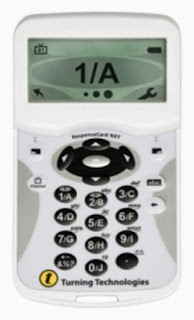I am suggesting two activities for our working group. Obviously, this working group may pursue a broad range of activities, and my suggestion should not limit anybodies enthusiams to launch other activities.
Regional Climate Change in the Baltic Sea region and its impacts on marine and terrestrial environments
www.baltic-earth.eu/BACC2/
Saturday, 21 December 2013
Baltic Earth, working Group on Outreach and Communication
I am suggesting two activities for our working group. Obviously, this working group may pursue a broad range of activities, and my suggestion should not limit anybodies enthusiams to launch other activities.
Labels:
Baltic Earth,
Brochure,
Communication,
Klimaatlas,
Outreach
Friday, 20 December 2013
Newsletter #1 of Baltic Earth
The first newsletter of the renewed BALTEX programme, now named Baltic Earth, has been published.
Tuesday, 10 December 2013
Cyclone 5--7 December 2013 (Xaver, Bodil) was also an event in the western Baltic Sea - an analysis
Das Seewetteramt Hamburg des Deutschen Wetterdienstes hat eine Analyse des Orkantiefs am 5-7 Dezember 2013 ausgearbeitet. Der Sturm hiess in Deutschland Xaver, in Dänemark Bodil.
Orkantief XAVER über Nordeuropa vom 5. bis 7. Dezember 2013Dr. Thomas Deutschländer, Karsten Friedrich, Dr. Susanne Haeseler, Christiana Lefebvre; Stand: 09. Dezember 2013
Orkantief XAVER über Nordeuropa vom 5. bis 7. Dezember 2013Dr. Thomas Deutschländer, Karsten Friedrich, Dr. Susanne Haeseler, Christiana Lefebvre; Stand: 09. Dezember 2013
Saturday, 7 December 2013
What do interested audiences think about climate change, the role of science and the Baltic Sea?
When discussing issues related to climate change, and in particular the process and result of BACC, I have recently used our “Turning Point” technology (for a voting pad, see Figure) to map the opinions among the audience. This system allows showing questions on the screen, and the participants respond by pressing a number of the pad – the frequency is determined by software on the laptop, and when the voting is complete, the result is shown on the screen – visible for everybody. The voting itself is really anonymous, as nobody can really see which number a neighbor is pressing.
The motive for doing this is two-fold, one to allow the audience to note that there are indeed different opinions in the room – the response is usually very positive – and that it may give us Baltic Earthers an extra understanding what our stakeholder perceive and believe. Obviously, these surveys do not provide a representative estimate of opinions, but a mere snapshots of very different groups. I my case, these groups have all in common, not only that they are interested in climate and Baltic sea, but they also join a presentation by Hans von Storch.
Subscribe to:
Comments (Atom)
